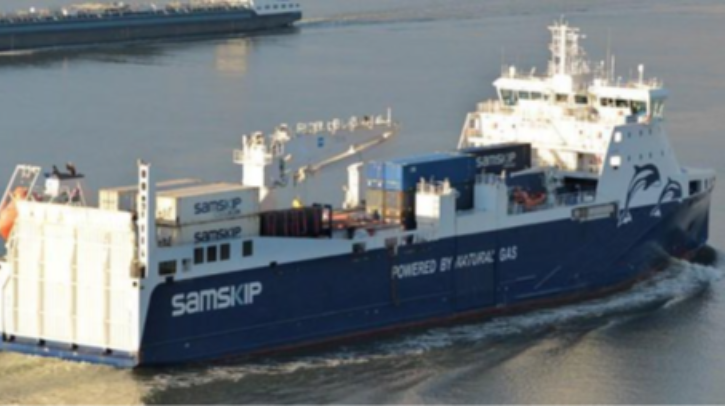TECO 2030 and BLOM Maritime have received an Enova grant for a pre-project aiming to retrofit multimodal logistics company Samskip’s vessel Kvitnos with TECO 2030 fuel cells and zero-emission hydrogen fuel.
Sustainable project goals
The project aims to reduce emissions from this LNG-fueled vessel, which currently operates on a weekly multipurpose service from Rotterdam in the Netherlands and along most of the Norwegian coastline to Hammerfest.
The goal of the project is to prepare for an investment decision to retrofit Kvitnos. The project also aims to facilitate long-term hydrogen fuel supply contracts.
Samskip already has one hydrogen-powered container vessel under construction in the SeaShuttle project; this new Kvitnos retrofit project may become Samskip’s second hydrogen project. For Samskip, the project represents an opportunity to greatly reduce, or even eliminate, all emissions from one of its existing vessels.
Innovative partnership
Blom Maritime will support naval architects, piping engineers and structural engineers to produce the documentation needed to obtain preliminary approval of the fuel cell and hydrogen solution.
Are Grathen, regional director, Norway and Sweden, Samskip, said, “With the delivery of our LNG-propelled multipurpose vessels back in 2015, Samskip already offered one of the world’s most environmentally friendly cargo ships, which eliminated SOx emissions while drastically reducing NOx and CO2 emissions. With this grant from Enova, and in close cooperation with fuel cell provider TECO 2030. We will continue our endeavor to enable full zero-emission propulsion which in turn will further pave the way for our H2-propelled new-builds coming out next year and bring us closer to our net-zero targets for 2040.”
Erik Hofmeester, head of fleet management at Samskip, added, “Samskip embraces every opportunity to reduce CO2 emissions either through using biofuels, CO2 capture-systems, shore-power, innovative new-building vessels, and now also into retrofit solutions. Using the power take-in device (PTI) driving the propellor with green energy, allows our existing vessels to sail and maneuver emission-free in the Norwegian Fjords and other coastal areas.”
Tore Enger, group CEO of TECO 2030, commented, “This grant shows our capability to help our clients secure public funding for smaller pre-studies, this means they can focus on progress towards their ultimate goals of zero-emission shipping. Our fuel cell technology is a great match for retrofitting the existing fleet to operate with environment-friendly propulsion along the coast.”
In related news, TECO 2030 and Umoe Mandal recently delivered the documentation package to the Norwegian Maritime Authority for an Approval in Principle application of what is said to be the world’s first fuel cell high-speed vessel design. Click here to read the full story.



